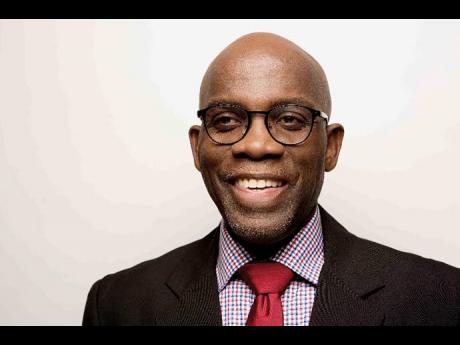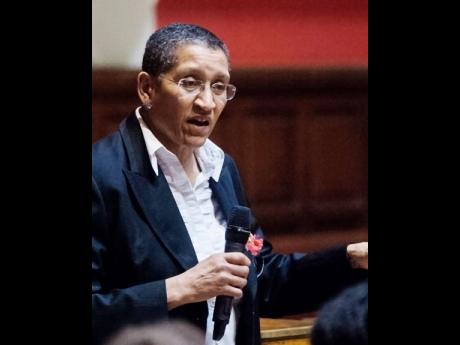Panel discusses relevance of Black History Month
The Gleaner marks 70 years in the UK with three-part webinar series
LONDON:
Calls have been made for Black History Month to be extended across Jamaica to counteract the legacy of colonialism.
The proposal was made by Dr Dennis Howard, a Jamaican ethnomusicologist, during a webinar organised by The Weekly Gleaner, titled ‘Is Black History Month Still Relevant?’
The virtual gathering, which attracted a distinguished panel of professors and doctors, was organised near the end of Black History Month last week.
Discussing the relevance of the month-long celebration, the former entertainment journalist and record producer said: “Black History Month should continue in the UK (United Kingdom), but it is also relevant to the Jamaican context because we have not celebrated the history of black heroes and people on the island in a significant way.
“National Heritage Week and National Heroes Day is one of the most disregarded public holidays in Jamaica. I would like to see the history of black people always celebrated and especially within the educational system, because our identity is under attack from a celebrity culture and neo-liberals. The miseducation of black people needs to be dismantled.
“The Jamaican Government needs to be lobbied for change. Many of my countrymen have no sense of being Jamaican and Africans.”
Howard’s comments coincide with the recent announcement that Wales is set to become the first UK nation to make teaching of black, Asian, and minority ethnic histories and experiences mandatory in the school curriculum.
The new curriculum framework is due to be introduced from September 2022.
Linda Bellos, a founder of Black History Month’s launch in 1987, recalled the thinking behind the event 34 years ago.
She said: “I was the chair of the London Strategic Police Unit, and I authorised Black History Month on the condition that it wasn’t a celebration of the African people’s contribution within the context of sport and music, but all the agencies of human development.
“I am delighted to see the progression of Black History Month and its contribution to our self-worth, especially among working-class black people.”
In recent years, concerns have been expressed at attempts to rebrand Black History Month, with some London councils scrapping the name and replacing it with titles such as Diversity Month to celebrate various ethnicities.
Professor Gus John, equality and human rights campaigner, believes that Black History Month is still relevant. Speaking passionately on the topic during the webinar, he said: “It remains important, but we need to be clear what we do with it and how we promote it.
“To achieve these objectives, it has to be reclaimed from the strange people and institutions who have attempted to appropriate the event.
“Black history is not about race relations, diversity, inclusion, or equality. We need to ask ourselves where, what, and who the African diaspora was before the colonialists invaded and massacred Africa.
“What has been our contribution to human knowledge? We can research and write about people and historical events for every day of the year. If we presented educational information during Black History Month, then it would make tremendous material, not only for black people, but society in general.
“We cannot sustain the narrative that our contribution to society only began in 1948 at Tilbury Docks, when the Windrush Generation arrived.”
Acquire economic power
Ansel Wong, a Trinidadian activist who prompted the idea of Black History Month in 1987, believes that there needs to be more emphasis on helping black people to acquire economic power, as stressed by Marcus Garvey. He said: “The Asian community is respected because of their wealth and economic influence. The black community can learn from this.”
Barbara Blake Hannah, the Jamaican author and journalist, believes that Black History Month is not relevant. She said: “A month is no longer relevant. It is always Black History Month. George Floyd’s death has opened the floodgates of consciousness, like molten lava flowing from a volcano. Some have responded because of guilt, and we have seen how statues of colonialists are being thrown into the river.”
The other speakers who took part included Pawlet Brookes, who is the founder and artistic director of Serendipity, a diversity-led arts organisation in Leicester, who said that Black History Month was still relevant but that it should not be limited to one month.
She said: “The month of celebrations is a period to introduce concepts and ideas to people, but throughout the rest of the year there is an opportunity to continue the conversations and that journey.
“At Serendipity we have a programme of work called Black Chat, which covers a number of topics throughout the year, and we also host the annual Windrush Lecture. We publish books and periodicals on issues to do with black art and culture, alongside a number of different festivals. Black History Month is important and we have to keep it as it gives us an opportunity to be proud, to have a voice, and for people to acknowledge their history and culture through creativity.”
Maxie Hayles, a veteran civil rights activist from Birmingham, gave four reasons why Black History Month was still relevant.
“We can start with the celebration of our ancestors for our own existence. Commemorating and giving respect to our great ancestors by honouring their memory. Thirdly, reflecting on our past history, experience, and future solutions as we continue to search for recognition, justice, equality and development. Finally, education to make sense of who we are and which is why black history should be placed on the curriculum and taught in schools,” he said.
The two-hour panel discussion was moderated by Dr Velma McClymont, a writer, poet, community activist, international speaker, and director of the social media platform, WomanzVue.
The webinar was organised by The Gleaner as part of its 70th anniversary of publishing continuously in the UK and was the first of a three-part series, with others planned for November and December.


